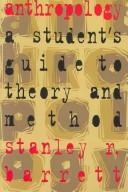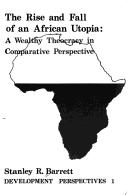| Listing 1 - 6 of 6 |
Sort by
|

ISBN: 0802008488 0802078338 0802088317 9786611994747 0802086047 1442682124 128199474X 9781442682122 9781281994745 9780802086044 9780802088314 1442638753 Year: 1996 Publisher: Toronto Buffalo London University of Toronto Press
Abstract | Keywords | Export | Availability | Bookmark
 Loading...
Loading...Choose an application
- Reference Manager
- EndNote
- RefWorks (Direct export to RefWorks)
Examining nine Asian Canadian and Asian American narratives, Eleanor Ty explores how authors empower themselves, represent differences, and re-script their identities as 'visible minorities' within the ideological, imaginative, and discursive space given to them by dominant culture. In various ways, Asian North Americans negotiate daily with 'birthmarks, ' their shared physical features marking them legally, socially, and culturally as visible outsiders, and paradoxically, as invisible to mainstream history and culture. Ty argues that writers such as Denise Chong, Shirley Geok-lin Lim, and Wayson Choy recast the marks of their bodies and challenge common perceptions of difference based on the sights, smells, dress, and other characteristics of their hyphenated lives. Others, like filmmaker Mina Shum and writers Bienvenido Santos and Hiromi Goto, challenge the means by which Asian North American subjects are represented and constructed in the media and in everyday language. Through close readings grounded in the socio-historical context of each work, Ty studies the techniques of various authors and filmmakers in their meeting of the gaze of dominant culture and their response to the assumptions and meanings commonly associated with Orientalized, visible bodies.
Ethnology. Cultural anthropology --- Anthropology --- Anthropology. --- Methodology. --- Philosophy. --- Canadian prose literature --- American prose literature --- Politics and literature --- Asians --- Asian Americans --- Asian Americans in literature. --- Asian Americans in motion pictures. --- Asians in motion pictures. --- Asians in literature. --- Narration (Rhetoric) --- Narrative (Rhetoric) --- Narrative writing --- Rhetoric --- Discourse analysis, Narrative --- Narratees (Rhetoric) --- Motion pictures --- Ethnology --- Orientals --- Literature --- Literature and politics --- American literature --- Canadian prose literature (English) --- Canadian literature --- Asian authors --- History and criticism. --- Asian American authors --- Intellectual life. --- Political aspects --- Ethnicity in literature. --- Philosophy --- Methodology --- Centro para la Promoción de la Conservación del Suelo y del Agua --- Asiaten. --- USA. --- Kanada --- Canada. --- PROSA --- Buenos Aires --- Canada (Province) --- Canadae --- Ceanada --- Chanada --- Chanadey --- Dominio del Canad --- Dominion of Canada --- Jianada --- Kʻaenada --- Ḳanadah --- Kanadaja --- Kanadas --- Ḳanade --- Kanado --- Kanak --- Province of Canada --- Republica de Canad --- Yn Chanadey --- Canada --- Puissance du Canada --- Kanadier --- Provinz Kanada --- 01.07.1867 --- -Canadian prose literature --- Dominio del Canadá --- Kaineḍā --- Kanakā --- Republica de Canadá --- -Ethnology. Cultural anthropology

ISBN: 0802056385 Year: 1984 Publisher: Toronto, Ont : University of Toronto Press,
Abstract | Keywords | Export | Availability | Bookmark
 Loading...
Loading...Choose an application
- Reference Manager
- EndNote
- RefWorks (Direct export to RefWorks)
Ethnology --- Philosophy

ISBN: 088920053X 0889200548 0889204918 0889208859 9780889200531 9780889200548 9780889208858 9780889204911 Year: 1977 Publisher: Waterloo, Ont. Wilfrid Laurier University Press
Abstract | Keywords | Export | Availability | Bookmark
 Loading...
Loading...Choose an application
- Reference Manager
- EndNote
- RefWorks (Direct export to RefWorks)
In 1947 a group of Yoruba-speaking fishermen who had been persecuted because of their religious beliefs founded their own community in order to worship in peace. Although located in an impoverished part of Nigeria, within a few years the village enjoyed remarkable economic success. This was partly because the fishermen held all goods in common, pooled the profits in the community treasury, and attempted to reduce the importance of the family and marriage. After about a generation the utopia began to fall apart. The early religious zeal faded, private enterprise replaced communalism, and the family became strong once more. In an attempt to explain the initial success and eventual decline of the utopia, the author compares it with neighbouring villages that embraced similar religious beliefs but did not enjoy the same economic success. He sets the problem firmly in a broad comparative framework and draws the implications for theories of development, especially Weber’s Protestant ethic thesis.
Collective settlements --- Yoruba (African people) --- Communal settlements --- Communistic settlements --- Communism --- Cooperation --- Socialism --- Collective farms --- Communal living --- Politics and government --- Religion --- UNSPECIFIED --- History & Archaeology --- Regions & Countries - Africa --- Yariba (African people) --- Yooba (African people) --- Yorubas --- Ethnology --- Sociology of the developing countries --- Economic conditions. Economic development --- Regional documentation --- Nigeria --- Politics and government. --- Religion.
Book
ISBN: 0802096123 0802099165 1442697016 1442697369 Year: 2009 Publisher: University of Toronto Press
Abstract | Keywords | Export | Availability | Bookmark
 Loading...
Loading...Choose an application
- Reference Manager
- EndNote
- RefWorks (Direct export to RefWorks)
Book

ISBN: 1526169940 1526158264 1526158248 Year: 2022 Publisher: Manchester : Manchester University Press,
Abstract | Keywords | Export | Availability | Bookmark
 Loading...
Loading...Choose an application
- Reference Manager
- EndNote
- RefWorks (Direct export to RefWorks)
The works of F. G. Bailey (1924–2020) provide a seminal template for good ethnography. Central to this is Bailey’s ability to conceptually connect the well-described micro-contexts of individual interactions to the macro-context of culture. Bailey’s core concerns – the tension between individual and collective interests, the will to power, and the dialectics of social forces which foster both collective solidarity as well as divisiveness and discontent – are themes of universal interest; the beauty of his work lies in his analyses of how these play out in local arenas between real people. His models provide nuanced, yet explicit road maps to analysing the different leadership styles of everyday people and contemporary leaders. This volume seeks to inspire new generations of anthropologists to revisit Bailey’s seminal texts, to help them navigate their way through the ethnographic thicket of their own research.
Agency. --- Gluckman. --- India. --- Leaders and followers. --- Manchester School. --- Normative rules. --- Political anthropology. --- Power. --- Situational analysis. --- Transactionalism.
Digital

ISBN: 9781487592844 Year: 2019 Publisher: Toronto, Ont. University of Toronto Press
Abstract | Keywords | Export | Availability | Bookmark
 Loading...
Loading...Choose an application
- Reference Manager
- EndNote
- RefWorks (Direct export to RefWorks)
| Listing 1 - 6 of 6 |
Sort by
|

 Search
Search Feedback
Feedback About UniCat
About UniCat  Help
Help News
News